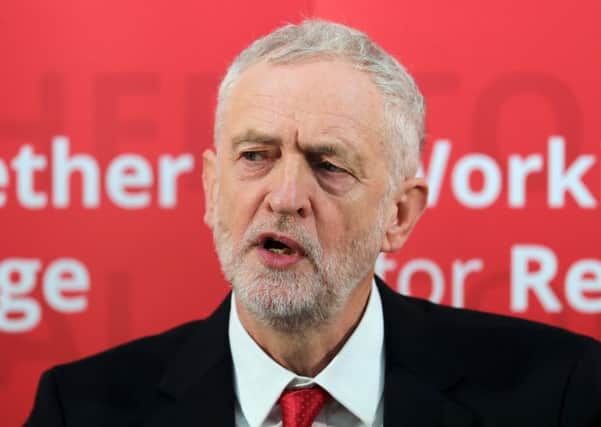Labour decision to whip Article 50 triggers frontbench resignation


Within hours of the Islington MP’s decision to impose a three line whip on the vote, shadow minister Tulip Siddiq announced she was resigning her position to fight a “hard” Brexit “from the backbenches”.
The development came as the Government published its legislation for the triggering of Article 50 – alongside a timetable that will see it pushed through the Commons in less than a fortnight.
Advertisement
Hide AdAdvertisement
Hide AdThis immediately led to accusations of trying to “railroad” the Bill, and threats to vote it down if MPs are not given more time to debate.
Today’s publication of the European Union (Notification of Withdrawal Bill) finally put an end to months of speculation over what form Brexit legislation would take.
At just two-clauses long, it is expected to present minimal opportunities for MPs and peers to amend, and is due to proceed through all stages in the Commons by February 8.
MPs will have a total of three days to debate the Bill in detail – starting on Tuesday– and Brexit Secretary David Davis said he trusted Parliament will “pass the legislation quickly”.
Advertisement
Hide AdAdvertisement
Hide AdBut SNP and Labour MPs have expressed outrage at the timetable, with one describing it as an attempt to “railroad” law through Parliament “without sufficient time for proper debate”.
This led a number of MPs to harden their opposition to Article 50, and confirm that they will vote against the legislation.
However, in the case of Labour MPs, this set them in direct conflict with their party leader, after Mr Corbyn confirmed he would impose a three-line whip to back the Government’s legislation.
This sparked talk of a rebellion, with a number of Shadow Cabinet members rumoured to be among the dissidents. And the issue came to a head when Shadow Minister for Early Years Tulip Siddiq resigned, stating she could not “reconcile” her pro-EU beliefs with “the frontbench position”.
Advertisement
Hide AdAdvertisement
Hide Ad“The vast majority of my constituents voted last year to remain in the European Union, as did I,” she wrote in a letter to Mr Corbyn. “On the announcement of the three line whip on the Article 50 vote, I therefore feel I have no choice but to resign from my front bench role.
“I know you have a difficult job as our leader and it is not my intention to cause more complications for you.
“I feel that the most effective place for me to counter Theresa May’s hard Brexit is from the backbenches.”
The Shadow Transport Minister and Cambridge MP Daniel Zeichner is also reported to be prepared to vote against the Bill, as is the party whip Thangam Debbonaire.
Advertisement
Hide AdAdvertisement
Hide AdBoth MPs represent constituencies that voted strongly in favour of remaining in the EU.
Mr Corbyn has stated that he “understand the pressures” such members are under, but nevertheless urged them “not to block Article 50”. He instead encouraged them to unite behind the party in its efforts to ensure a Brexit that protects workers rights and secures access to the European Single Market.
Labour has confirmed that it intends to table six amendments to the Government Bill, including one to guarantee a “meaningful vote” in Parliament on the final Brexit deal, and another requiring ministers to update the Commons on negotiations “at least every two months”.
It is understood that other opposition parties are tabling “reasoned” amendments to oppose a second reading of the Bill, with the SNP arguing that “the UK Government has failed to properly consult with the devolved administrations [or] produce a white paper on its plan”.
Advertisement
Hide AdAdvertisement
Hide AdSpeaking to this paper, the Sheffield Central MP and shadow Brexit minister Paul Blomfield claimed Labour’s amendments “will improve accountability and scrutiny of the negotiations”.
But the Lib Dem foreign affairs spokesman Tom Brake has criticised Labour’s stance, describing it as a “weak response from a failing opposition”. “Only the Liberal Democrats are fighting to prevent a hard, destructive Brexit and to ensure the public have a vote on the final deal,” he said.